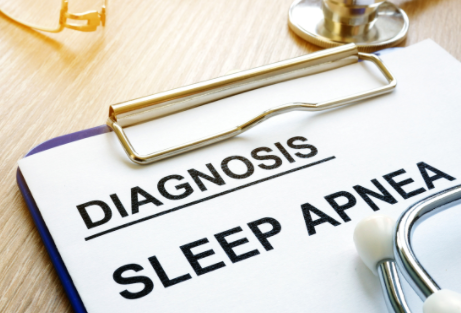Can a Dentist Treat Sleep Apnea Symptoms?
Can a Dentist Treat Sleep Apnea Symptoms?
Sleep apnea symptoms manifest themselves in different ways. This condition is a common sleeping disorder disrupting breathing for a few seconds during sleep.
Described as repeated occurrences of total or partial airway obstruction during sleep, obstructive sleep apnea is commonly manifested when we snore.
According to the National Sleep Foundation, almost 18 million Americans experience this sleeping disorder. Sleep apnea symptoms can cause a decrease in the amount of oxygen in the blood. This incident can also cause low quality of sleep.
What Causes Sleep Apnea Symptoms?
This obstructive sleeping condition is linked to the soft tissues of the throat and the mouth. When we sleep, the tongue and throat muscles are more relaxed. This means that the soft tissues in that part of the body can block the airway.
However, many other factors contribute to obstructive sleep apnea in adults. Some of these factors include obesity and excess weight.
In children, on the other hand, obstructive sleep apnea is a result of adenoids or enlarged tonsils.
Oral conditions can also contribute to this sleeping disorder.
Thus, more and more patients are turning to dentistry to treat their sleep apnea symptoms.
The Essential Role of Dentistry in Treating Sleep Apnea Symptoms
Dentists and dental hygienists play an essential role in curing obstructive sleep apnea. They also have a pivotal position in discussing the sleep apnea symptoms and the characteristics, risks, and medical referrals for this sleep disorder.
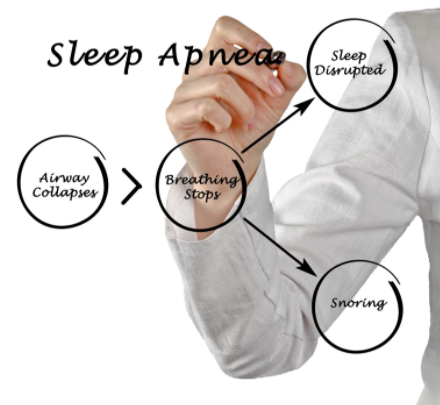
Dentists and dental hygienists are being trained to receive the appropriate training and education about obstructive sleep apnea.
In addition, they are experienced educating their patients about this condition.
When you get an oral exam, it’s not uncommon for your dentist or dental hygienist to detect if you have sleep apnea symptoms.
In today’s post, let’s explore the role of dentistry in detecting and treating sleep apnea symptoms among their patients.
Dental Professionals on Identifying and Screening Sleep Apnea Symptoms
Obstructive sleep apnea is a sleep disorder. Dental professionals have the tools and education to identify and screen the symptoms of it.
However, according to research, only half of the dental professionals can correctly identify the real signs of sleep apnea symptoms. Due to this, obstructive sleep apnea is the most common undiagnosed sleep disorder.
In fact, up to 80% of adults have moderate to severe symptoms of this breathing disturbance. Health conditions such as obesity, hypertension, and diabetes are some of the common health conditions associated with sleep apnea.
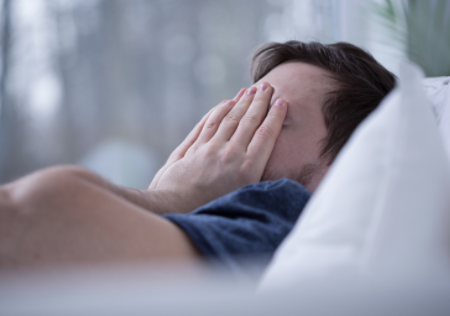
There is also a significant correlation between obstructive sleep apnea and severe cases of periodontitis.
This association between those two conditions suggests the importance of optimal oral health – especially when a patient is at risk for obstructive sleep apnea.
The identification of this sleep and breathing disorder is essential to the dental community.
Dentists and dental hygienists have the valuable opportunity to do the initial screening for patterns of sleep apnea symptoms and other risk factors.
There are several screening tools that dental professionals use in identifying the risks of obstructive sleep apnea.
3 Sleep Apnea Categories
The three categories of this sleeping condition are:
- Obstructive Sleep Apnea (OSA)
This is the occurrence of four or more events of apnea throughout the night while the individual is sleeping.
- Central Sleep Apnea
This category occurs when there is a drop in oxygen saturation levels. The levels drop because the brain fails to transmit this urgent message to the rest of the body: Keep breathing. Thus, the result is shallow and ineffective breaths.
- Complex Sleep Apnea
This category is a combination of obstructive sleep apnea and the central variety.
Risk Factors and Characteristics and of Sleep Apnea
The first time that obstructive sleep apnea obtained recognition from the medical community is back in the 1980s. Since then, this sleep condition has gradually been looked at by various research and studies.
In the West, obstructive sleep apnea remains the most common undiagnosed sleep condition and chronic disease.
In fact, up to 85% of moderate to severe cases of obstructive sleep apnea are undetected.
On top of that, one in five adults in the United States has mild to severe obstructive sleep apnea.
Some common sleep apnea symptoms include:
- Daytime tiredness and sleepiness
- Snoring
- Insomnia
- Oral manifestations such as a large tongue and attrition
- A larger neck (can grow up to 17 centimeters)
Obesity has had significant links to this sleeping disorder.
Dental Sleep Medicine: An Effective Sleep Apnea Treatment?
Many dental professionals are trained to treat the symptoms of sleep apnea and snoring. This dental practice area is referred to as dental sleep medicine.
The treatment focuses on utilizing oral appliance therapy programs. These appliances are engineered to treat sleep apnea symptoms, such as snoring and other oral factors that contribute to sleep disorders.
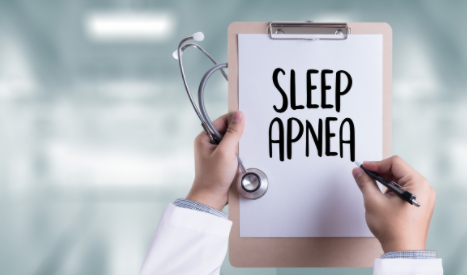
Dentists work with physicians to help patients with obstructive sleep apnea.
There’s also a professional society of dental professionals to help patients manage and control sleep apnea symptoms.
The members of the American Academy of Dental Sleep Medicine are highly trained to help sleep apnea patients.
Tooth Grinding: First Sign of Sleep Apnea Disorder
One of the first signs of sleep apnea is teeth grinding. This condition is also called bruxism. If you don’t know if you grind your teeth during sleep, your dentist may be the first one to tell you.
During your dental checkup, your dentist will check for signs of a worn tooth. They inspect the surfaces of the teeth for wear or damage.
Bruxism can cause receding or inflamed gums. Also, if you have a lot of tooth decay, it can lead to sleep apnea and bruxism.
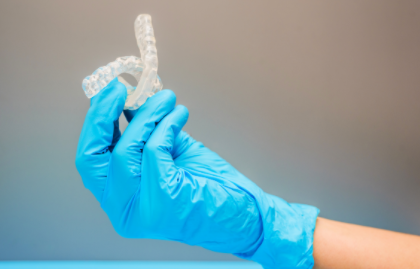
Using a Night Guard
A lot of people use a nightguard to help prevent bruxism.
However, it would be best if you had a custom-made nightguard to help with sleep apnea.
If you buy an over-the-counter night guard, it’s not going to help with sleep apnea symptoms.
Sleep Affects the Quality of Life
The quality of our sleep can have a significant impact on our health and overall quality of life. Sleep apnea symptoms and snoring can disrupt our sleep.
On top of that, it can increase the possibility of severe health issues. If you, your significant other, or any member of your family snores a lot, you should not overlook this issue.
